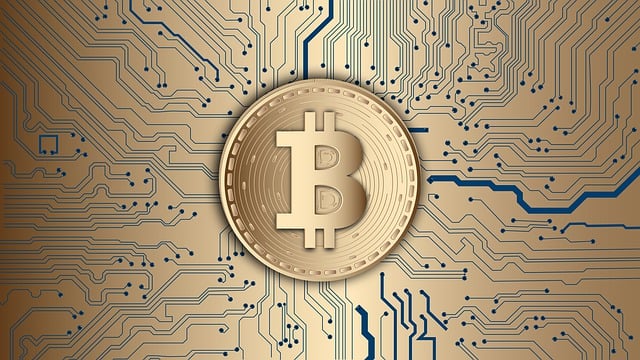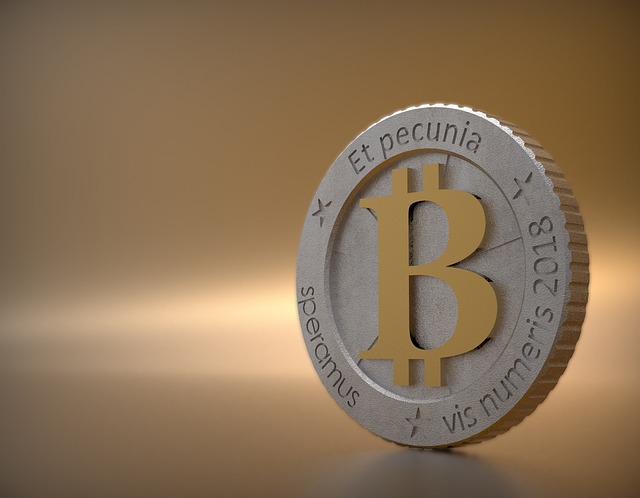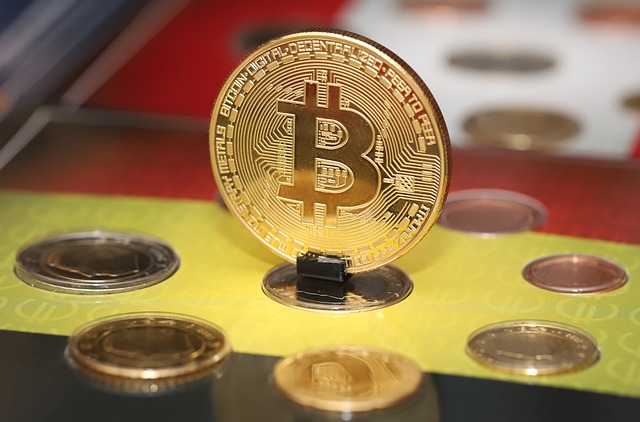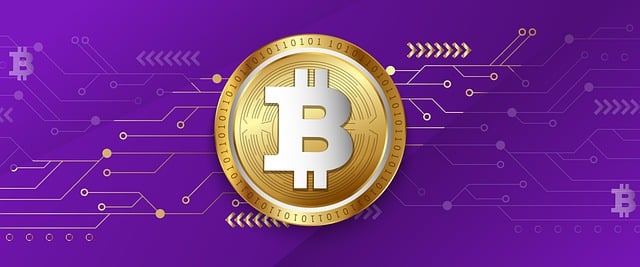Decentralized Finance (DeFi) is a revolutionary concept utilizing blockchain technology to democratize financial services by eliminating intermediaries, fostering transparency and security. With applications ranging from lending and borrowing to trading and savings, DeFi has the potential to reshape global financial systems by enhancing accessibility, privacy, and efficiency for previously underserved populations, while challenging traditional banking models. Despite challenges like security vulnerabilities and regulatory uncertainty, DeFi's bright future promises to disrupt and transform financial sectors worldwide, offering greater inclusion and control over assets and data.
In the evolving financial landscape, Decentralized Finance (DeFi) is emerging as a disruptive force, reshaping traditional banking models. This article explores the intricacies of DeFi, its rapid ascent, and its potential to revolutionize global financial services. From understanding the core concepts to examining its comparative advantages over centralized systems, we uncover key components driving its impact. We also delve into the benefits and challenges associated with widespread adoption, while peering into the future outlook of this dynamic sector, revealing how DeFi could redefine our financial interactions.
- Understanding Decentralized Finance (DeFi): Unlocking the Basics
- The Rise of DeFi and Its Disruptive Nature
- Centralized vs Decentralized: A Comparative Analysis
- Key Components Driving DeFi's Potential Impact
- Benefits and Challenges in DeFi Adoption
- The Future Outlook: Shaping DeFi's Role in Finance
Understanding Decentralized Finance (DeFi): Unlocking the Basics

Decentralized Finance (DeFi) represents a revolutionary concept in the financial world, aiming to democratize access to traditional financial services by eliminating intermediaries like banks. This innovative approach leverages blockchain technology, allowing for transparent and secure transactions directly between users. At its core, DeFi seeks to unlock the potential of smart contracts, which are self-executing agreements with predefined rules, ensuring trust and efficiency.
The true power of DeFi lies in its ability to include previously underserved populations in global financial systems. By removing geographical barriers and offering lower transaction costs, DeFi has the potential impact to reshape how we interact with money. From lending and borrowing to trading and savings, DeFi platforms are fostering a new era of financial inclusion and transparency, empowering individuals to take control of their economic future.
The Rise of DeFi and Its Disruptive Nature

The emergence of decentralized finance, or DeFi, represents a seismic shift in the financial landscape, promising to disrupt traditional banking models and empower individuals with unprecedented access to economic opportunities. By leveraging blockchain technology, DeFi platforms offer a suite of services that mirror those provided by centralized institutions but operate transparently and without intermediaries. This paradigm change has ignited a wave of innovation, with decentralized exchanges, lending protocols, and stablecoins reshaping the way we interact with financial systems.
The disruptive nature of DeFi lies in its potential to democratize wealth creation, provide financial inclusion to the unbanked, and enhance privacy and security in transactions. With open-source code and transparent ledgers, DeFi applications foster trust and reduce reliance on intermediaries, allowing users to have full control over their assets. As a result, individuals from all walks of life can participate in complex financial activities, such as borrowing, lending, trading, and earning interest, without needing to navigate the often convoluted processes and high fees associated with traditional finance.
Centralized vs Decentralized: A Comparative Analysis

In the realm of finance, the traditional centralized systems have long been the norm, with banks and financial institutions acting as intermediaries. However, a paradigm shift is taking place with the emergence of Decentralized Finance (DeFi), which promises to revolutionize the way financial services are delivered. Centralized vs decentralized represents a fundamental distinction in how transactions and data are managed. Centralized finance relies on a single authority or entity to control and validate every aspect, ensuring a structured yet potentially slower process. In contrast, decentralized finance leverages blockchain technology to create a peer-to-peer network where participants can interact directly without the need for intermediaries.
This shift towards decentralization holds significant implications for the future of finance. DeFi has the potential to increase accessibility by allowing anyone with an internet connection to participate in various financial activities like lending, borrowing, trading, and more. It promises greater security through cryptographic verification and distributed ledgers, reducing the risk of fraudulent activities. Moreover, decentralized systems offer improved privacy as user data is not stored in a central location, mitigating the potential for data breaches. The impact of DeFi extends beyond financial inclusion, potentially reshaping traditional banking models and creating new opportunities for innovation in the digital age.
Key Components Driving DeFi's Potential Impact

The decentralized nature of Decentralized Finance (DeFi) is a key component driving its immense potential impact on the global financial landscape. By eliminating the need for intermediaries like banks, DeFi platforms enable direct peer-to-peer transactions, fostering financial inclusion and accessibility. This revolutionary approach leverages blockchain technology to create transparent, secure, and efficient financial systems, allowing users to manage their assets without centralized control.
Another critical aspect is the diverse range of financial services DeFi offers. From lending and borrowing to trading and yield farming, these platforms provide innovative solutions that democratize finance. The use of smart contracts ensures automated execution of agreements, reducing human error and increasing trust. Additionally, DeFi’s open-source nature encourages collaboration and innovation, leading to rapid advancements in the field, ultimately shaping a more inclusive and efficient financial future.
Benefits and Challenges in DeFi Adoption

The rise of decentralized finance (DeFi) has brought about a new era in the financial landscape, promising to democratize access to financial services and create a more inclusive global economy. One of its key benefits is the elimination of intermediaries like banks, enabling users to have greater control over their funds through smart contracts. This technology allows for 24/7 accessibility to various financial products such as lending, borrowing, and trading, fostering financial independence and flexibility for individuals worldwide. DeFi has also opened doors to higher interest rates on savings, attracting those seeking improved returns.
However, despite its potential impact and vibrant growth, DeFi adoption faces several challenges. Security remains a significant concern due to the complexity of blockchain technology and smart contracts, which can be vulnerable to hacks and bugs. Regulatory uncertainty is another hurdle; as DeFi operates outside traditional financial frameworks, governments and central banks are still formulating regulations, leading to legal ambiguities. Additionally, the lack of centralized oversight makes it harder to ensure consumer protection and recover losses in case of platform failure or fraud. These challenges must be addressed to encourage wider acceptance and mainstream integration of decentralized finance.
The Future Outlook: Shaping DeFi's Role in Finance

The future outlook for decentralized finance (DeFi) is promising, with its potential to revolutionize traditional financial systems becoming increasingly evident. As DeFi continues to evolve, it aims to shape a new role in the global financial landscape by offering alternative and inclusive solutions. The technology’s ability to operate beyond geographical boundaries and traditional banking systems opens up exciting possibilities. By removing intermediaries, DeFi has the power to democratize access to financial services, enabling users to have more control over their assets and data.
The impact of DeFi could be far-reaching, potentially disrupting the way loans, savings, investments, and insurance are structured and accessed. It promises greater financial inclusion for unbanked or underbanked populations, providing them with tools for managing and growing their resources. Furthermore, the transparency and security offered by blockchain technology can foster trust and stability in the financial sector. As DeFi gains traction, its potential to disrupt and transform existing financial paradigms into a more efficient, transparent, and accessible system becomes increasingly clear.
Decentralized finance (DeFi) has emerged as a revolutionary force, challenging traditional financial systems with its transparent and accessible nature. As we’ve explored throughout this article, DeFi’s potential impact is profound, offering benefits like increased accessibility, reduced fees, and enhanced security. However, challenges remain, from regulatory uncertainty to complex user interfaces. Moving forward, the future of DeFi looks promising as innovations continue to shape its role in finance, potentially transforming how we interact with money globally.
